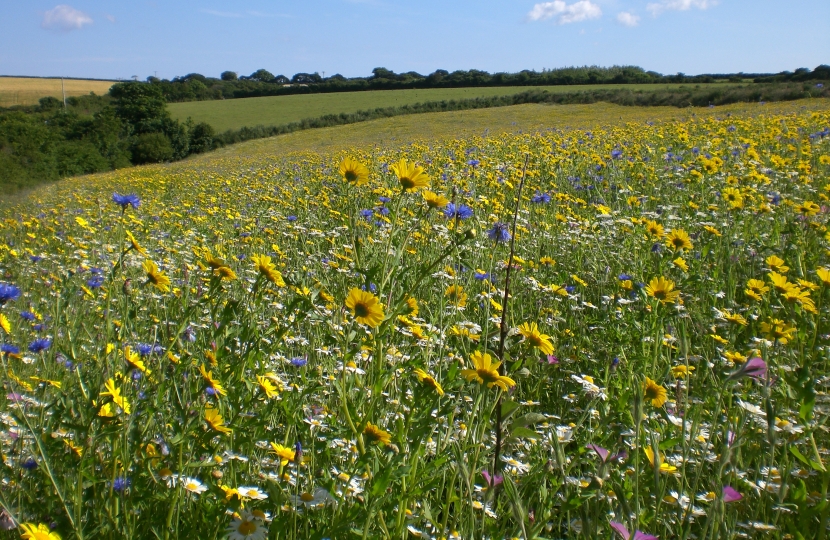
“Think global, act local” has been the advice to environmentalists for fifty years. Derek’s latest Climate Focus meeting covered the whole range, from thinking about the climate crisis globally to hints on how to increase biodiversity very locally, in our own gardens.
Derek has been co-hosting - with Pippa Stilwell, the WI’s Climate Ambassador - a series of popular Climate Focus events to enable local residents to learn about climate change and the action taken locally to address the impacts of the climate crisis. They have been taking place on Zoom, so their popularity has spread outside Cornwall - and all are very welcome.
This week’s meeting involved presentations from the RSPB and the Cornwall Wildlife Trust about Nature-based Solutions to tackle global warming. The main focus of decarbonisation has to be reducing emissions: which is why the G7 has committed to further emissions reduction targets. But Nature-based Solutions have a part to play: our woods, pastures, peatlands and other wild areas act as a carbon store for two gigatonnes of Carbon - that’s the same as four years of emissions.
Two-thirds of our carbon stores are outside SSSIs (Sites of Special Scientific Interest), so awareness of their importance is vital. Work on Nature-based Solutions needs to be done intelligently - tree-planting, for example, only works if trees are planted in the right place; one of the speakers complained about a politician planting trees on peatland, which carries no benefit. Small changes in behaviour can have a big response - the Cornwall Wildlife Trust is asking boats not to moor on chains along the seafloor, as these damage eel grass (a surprisingly important part of the ecosystem).
Nature-based Solutions to the climate crisis is not another name for the conservation that the RSPB and Cornwall Wildlife Trust have always done - but conservation and tackling emissions can work together. We learnt how the re-introduction of beavers into Cornwall has not only increased biodiversity locally, but has also built resilience against floods and climate change.
Protecting our allies in the natural world doesn’t have to be difficult, and the meeting ended with lots of advice on how we can help increase biodiversity and build resilience in our own gardens. Never use peat; have a log pile, a compost heap and a pond, even if it is as small as a bowl or sink; plant trees and shrubs to support wildlife in three dimensions; and try to keep at least one section of grass unmown. Above all, be less tidy!
The next meeting is about Educating the next generation about climate change, and will take place online on 14th July. If you would like a link to the Zoom call, send an e-mail to Derek's office.



